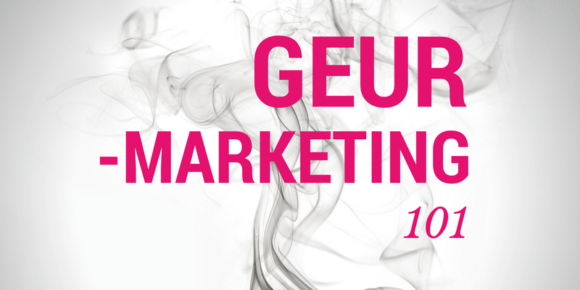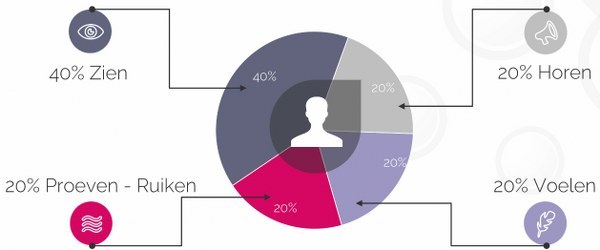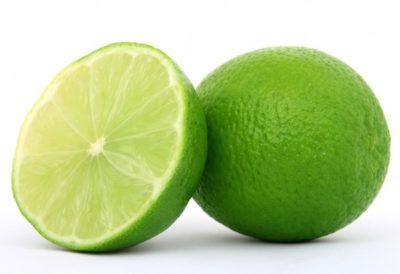In this guide, we discuss everything about scent Marketing. Here’s a quick overview:
- What is scent Marketing?
- Why Marketing with Scents?
- How does Olfactory Marketing work?
- Fragrance Marketing in Practice
- The importance of the 5 senses (and Scents) in marketing
- Case Studies (scent marketing research)

When someone says they are a specialist in scent marketing, you usually still wonder what exactly that person does. Well, I try to answer that in this blog post. More precisely on the What, Why and the How. As well as some practical examples on why this is so important in any commercial space. And why we currently pay far too little attention to scent marketing.
1. What is Fragrance Marketing?
An important question, of course, is: What is scent marketing? We would like to give a clear answer to this. Scent marketing is a marketing tool where scent is subtly used at the point of sale.
The overall goal of scent marketing is to enhance brand experience, brand perception or product experience.
Here’s how it works: Fragrance consultants match a fragrance to the brand identity of the brand in question. Or to a specific product to be stimulated with scent (E.g., a strawberry scent to stimulate strawberry sales).
To disperse the scents, use a scenting machine. These are programmed to automatically spread a precise intensity of fragrance and be activated at the right time.
The result is better brand recognition and an increase in the recall value of your product, service or brand. Resulting in a stimulated “top of mind” that differentiates your brand from the competition with scent association.
In the short term, olfactive marketing can even have a significant impact on the sales of a product or service, as we will demonstrate in a moment. So read on!
2. Why Marketing with Fragrances?
Why scent marketing? -> Brand experience.
In this day and age, it is not that we should only be concerned about offering a good and sound product or service with a competitive price. The sales space and experience should also be made as attractive as possible.
By the way, this applies not only to stores, but in all possible areas where we receive potential customers for our product. After all, they need to get a good impression of our complete service. Not just from a solid product or service.

The tools at our disposal for this are the senses. These should reinforce each other and be used optimally. Hearing, seeing, tasting and feeling are the obvious senses that we all know we should not underestimate.

One of the most important senses, smell, is still considered a non-important sense. Completely unjustified of course. A market strategy that wants to give a product or service an image cannot do without a clear strategy in which ALL senses are used. Marketing with scent should not be forgotten.
Moreover, it is important that these senses reinforce the brand experience. Whereby a coherent, recurring story is conveyed. Cracks in that story are completely out of the question.
Obviously, this includes a long-term strategy that is carried consistently throughout the company.
However, so here I am certainly not advocating a mono sense communication of only smells. This would be doomed to failure, but neither does a strategy of just images or music. This might have been possible 50 years ago, but would have had a short life in today’s competitive marketplace. After all, if you have a bad smell in your commercial space, you can never make up for it with all the other tools at your disposal. You are lost….and that is the very last situation we want to find ourselves in I think.
By the way, read more about the power of fragrances in retail on our blog post: the Commercial Impact of Fragrances in Stores.
83% of commercial communication currently focuses exclusively on our eyes. The other senses, touch, taste, smell and sound are hardly used in marketing. And that while, for example, 75% of our emotions are determined by what we smell.
As a result, there is still a large market waiting here to distinguish you from your competitors. So Scent marketing is still far too underestimated by marketers.
3. How does olfactory marketing work?
Scent marketing is based on the physiological effect of scents.
Physiologically, we experience odors in the following way: Odors dissolve in the olfactory mucosa. They are then absorbed through the olfactory epithelium, which is located on the inside of the nose. Our nerve pathways then transport the odors to our limbic system in the brain.
The limbic system in our brain is responsible for our emotions and memory. Only the nose is directly connected to the limbic system. As a result, olfactory experiences have the strongest, most direct effect on our emotions. Stronger than what we see or hear.

So you cannot forget that smell is one of our most important senses. For example, the memory of a smell acts much more strongly than visual memories. The olfactory stimulus is guaranteed to evoke strong emotions.
Marketing with fragrances, therefore, is seen as the new means of creating an emotional bond with the customer. It is precisely this emotional connection that is so valuable in a highly competitive market.
After all, when entering a store, you can decide not to hear something or not to see something. But you can’t decide not to smell something anymore. “You have to deal with it” or, of course, you can just walk out. Unfortunately, that is not what you wish a potential customer to do when he enters your store.
What you want, however, is to encourage a positive brand experience. And in this way make your customers feel good when they enter your store. This is how scent marketing works. As a result, customers will wish to stay longer in the commercial space and obtain a positive association of your brand and store. Since scent marketing influences emotions and emotions influence buying behavior, it can have a strong impact on actual sales.
The fact is that values and rational characteristics of a product or service are now few and far between. Most products claim to be high quality, solid, inexpensive and provide optimal service. But the differentiation lies precisely in the emotional factor. Hence the power of fragrances in your marketing mix.
4. Fragrance Marketing in Practice
When fragrances perfectly match the intended appearance of your product or service, you will maximize the effect of scent marketing. After all, the psychological influence of fragrance ingredients determines our perception of brands or services.
When you are in the food industry, ingredients are very available. For example, if you sell roast chicken, then this scent will promote sales of roast chicken. The same goes for achieving increased sales of green apples or tangerines or cherries.

However, when you own a men’s or women’s clothing store, things get a little more complicated and you have to consider the effect ingredients have on your well-being.
Some 10 examples of the influence of scent experience:
1. Cedarwood scent will reduce anxiety, give you courage and calm you down. It is more of a masculine scent.
2. Lemon scent makes you feel confident, gives a fresh mind and clarifies thinking. It is uplifting, stimulating and opens the heart.
3. Scent of lemongrass energizes and helps you get going in the morning. Consequently, this fragrance brightens the mind.
4. Eucalyptus is uplifting, gives courage and is analgesic. It gives you balance in mental worries. It purifies the atmosphere and promotes healing.
5. Jasmine makes you calm, works against stress and is a sleep inducer. Moreover, this fragrance stimulates your imagination and is rather feminine.
6. Green tea fragrance gives you a clean and pure feeling to persons and their surroundings.
7. In turn, the scent of green apple energizes, increases libido and enhances concentration.
8. Cinnamon scent has a healing and purifying effect. It gives courage and meaning to life.
9. The scent of lavender stimulates thinking, is soothing, relaxing and calming.

10. Tangerine scent also soothes, calms and brings out our gentle childlike qualities. It makes cheerful and gives happiness.
11. Grapefruit scent is invigorating and refreshing. It relieves stress, depression and tension. As a result, it creates optimism and therefore improves mood.
And so we can go on and on….
Need advice on the right scent in your business? Ask for free advice our Odor Experts.
Smell, moreover, affects perception and perception. The same painting is more often found beautiful with a pleasant scent. A woman with a nice herbal scent is estimated to be six years younger on average.
Employers are even applying marketing with scents to increase employee well-being.
5. The importance of the 5 senses (and smells) in marketing
Although scents have the most direct contact with our emotions, emotions are determined by all our senses. It is therefore important that we use the 5 senses in our communication and during all possible contacts with our customers. Only then will we stand out and be remembered.
Here, of course, it is very important that the deployment of each sense separately is done deliberately and professionally. This is for the long term. After all, marketing only works in the long term. Quickly working out a market strategy and then adjusting it every quarter is not expedient and will have very little effect.
As communication specialists, we have many tools at our disposal for each sense:
- After all, for seeing, we can use color, energy, light, movement and form.
- For hearing, our tools are harmony, modality, tempo, rhythm and volume.
- Feeling, in turn, can be filled in by properties, temperature and texture.
- For tasting, we can use neutrality, round, fresh, powerful, full or pungent.
- We then turn to the most important and underrated sense, smell. For this we use emotions, memories, recognition, familiarity and arousal.
The possibilities for scenting are very large. The art lies in finding the right ingredients that best express your product or service. This requires specialization and cannot be learned in a short time. A thorough knowledge of the possibilities of scent marketing is therefore very important.
6. Scent marketing research
Of course, a lot of research has been done on scent marketing. The scent marketing research shows fantastic results. Sometimes even through small changes. But scents continue to play the leading role in our scent marketing research.
Case Study 1
People behave more generously and generously under the influence of lime scent.

This would be evident from an American experiment in which subjects were asked to donate money.
Researchers from Northwestern University and Brigham Young University asked subjects if they were willing to donate money to charity. Participants in the experiment were also polled to perform charitable work.
During questioning, some subjects were in a room in which the scent of lime hung. Other subjects were in a room that had not been refreshed with an artificial aroma.
The study found that the people in the room with lime scent were more willing to donate money than the subjects in the other room (22% vs. 6%).
People in the “lime room” also promised to roll up their sleeves for charity more easily. Source: Nu.nl -20091026
The big challenge of the above is to use the right ingredients in the right dosages in a perfume so that your product or service is best served by your brand positioning. That is precisely scent marketing. This is because olfactory stimuli work directly on customers’ most primitive decision center: instinct. Scents revolve around reason provoking strong and irrepressible impulses, emotions and/or memories. They make you fight, flee, eat or sleep. This is precisely where the strongest opportunities for scent marketing lie.
Case Study 2
Nothing can transport you to past times faster than a certain smell. But why is it that smells leave such deep marks in our brains?
Israeli scientists believe they have found the answer: “smell memories” leave a very different kind of trace in our brains than other types of memories, such as images, sounds and words.

This makes olfactory memories a “privileged” kind of memories; they come first.
Experiment:
The Israeli researchers tried to mimic childhood olfactory memories in 16 adult volunteers.
In the lab, these were shown a picture of an object combined with a scent of a pear or a fungal odor.
90 minutes later, they were shown the same picture, but with the other scent.
After a week, which association was strongest was tested by exposing the volunteers to the same odor.
During all tests, the volunteers were connected to a functional MRI scanner, which measures brain activity.
In general, the volunteers found it easier to remember unpleasant odors than pleasant odors.
But the MRI scans show that the hippocampus in the brain “lit up” differently when the volunteers were exposed to the first smell (which they had been exposed to the week before). With the second odor, the brain did not respond in a special way.
So the type of smell does not matter, what does matter is the order.
Evolution:
How then is it explained that people are more likely to remember the “pleasant”?
According to Dr. Yeshurun, it makes evolutionary sense that bad experiences are remembered better than good ones. Evolution also explains why smell memories get preferential treatment in the brain: Our ancestors may have leaned more on their sense of smell to detect poisonous plants, rotten food and enemies than we do. Therefore, it was important that these scents be etched most strongly in our brains.(edp)
Conclusion
Scent marketing research provides clear evidence of the influences scent marketing can have on our well-being. Our behavior is largely determined by it.
In this way, of course, it also greatly influences our consumption behavior.
Otherwise, consider the following situation for a moment: If you were doing everything right now in terms of your communication and experience in your store, but you have the misfortune that a negative smell is present in your sales space. Then your efforts will be in vain and will have no effect.
This is a black-and-white situation, of course, but illustrates the importance of a pleasant fragrance in any commercial space where you receive potential customers.
So be sure to consider scent marketing when creating your communication plan.
Want to learn more about scent marketing? Contact our scent experts or request a scent machine quote.
